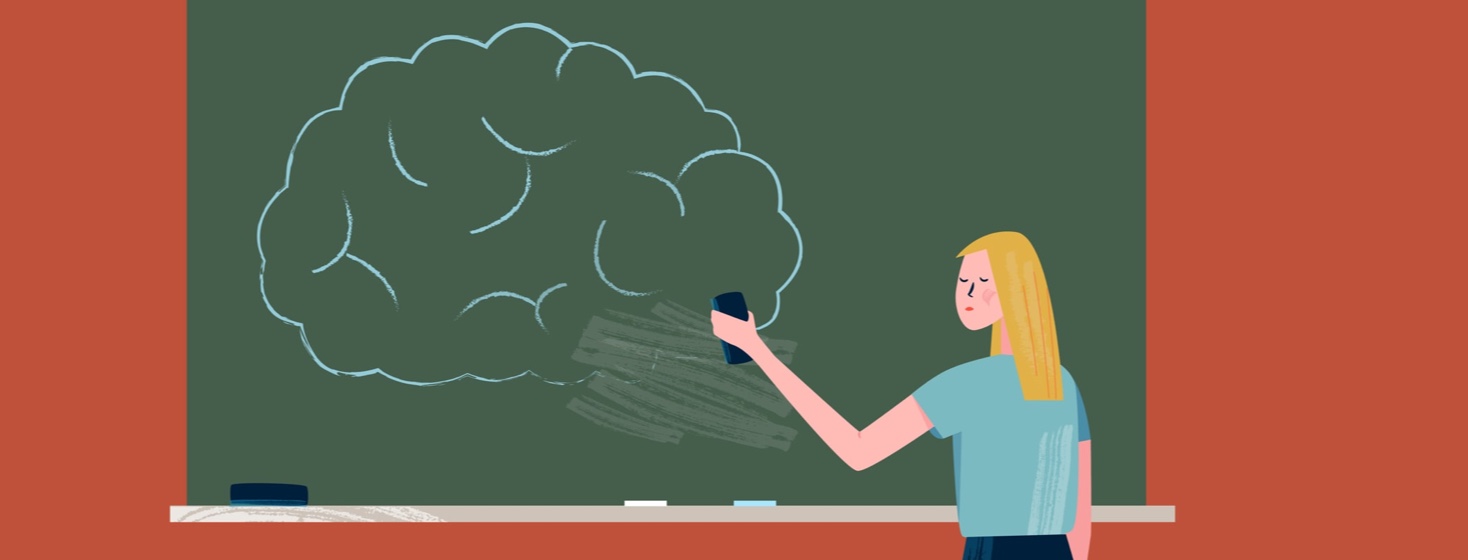What About Memory? Oh Yeah, I Forgot.
Can epilepsy affect memory? People with epilepsy may experience memory difficulties, which can be caused by seizures, medication, temporal lobe damage, or other impacts of the condition.
How epilepsy impacts memory loss
Epilepsy can impact memory in several ways:
- Seizures: During and after a seizure, consciousness and awareness can be be temporarily affected, making it difficult to recall events.
- Temporal lobe damage: The temporal lobe stores numerous memories. However, if any damage is caused by epilepsy to this area of the brain, such as a lesion or tumor, it can also lead to memory problems.1
- Mental health: Depression, anxiety, and other mental health issues can also happen in people with epilepsy, and these can contribute to memory difficulties.
- Lack of sleep: Epilepsy or its medications can disrupt sleep, and insufficient sleep can also affect memory.
Forgetting things, getting lost
My memory loss was not severe when I was young, possibly because I had less to do and take care of. However, as I grew older and entered my teenage years, I began to experience memory difficulties, especially with things like walking to school, paying for things, and keeping track of items like schoolbooks.
Sometimes, I even walked in the wrong direction, which definitely caused me anxiety. Fortunately, I usually made it where I needed to be. Nevertheless, I will say, "I have no sense of direction." It's very accurate.
Can anti-seizure medications impact memory?
After years of taking medication – since I was an infant, including hormones – I've found my medications have significantly affected my memory, causing drowsiness and lack of concentration. It can become really challenging.
And while some anti-epilepsy prescriptions may affect memory function, they may also decrease seizures, which may assist in improving some aspects of memory... So it's a double-edged sword. It's important for me to remember that while some of these medications may have effects on my memory, they can still help me manage my seizures.
Memory aids
For me, remembering even the simplest things can be a challenge. That's where memory aids come in. As a writer who is always on the move, I find them necessary. Memory aids offer reminders and even brain-training exercises that can help with daily tasks. They are good for people with epilepsy and other memory impairments.
I use memory aids such as:
- Diaries/notepads/whiteboards: Keeping a journal or diary effectively retains and arranges events, contacts, and assignments. It can also serve as a valuable aid in generating task lists and monitoring daily, weekly, and monthly responsibilities, such as paying bills.
- Phone alerts: One helpful strategy to remember important daily tasks, upcoming appointments, or critical future dates is to set reminders on your cell phone, computer, or alarm clock. This is especially helpful for remembering to take your medications at the correct time.
I rely heavily on tools like diaries and notes to keep track of my daily and weekly tasks. Being organized is crucial, especially for someone like me who suffers from severe memory loss. As a full-time freelance writer, having a reliable and accurate memory is essential to my work.
This or That
What works best for you?
Managing my memory issues at work
As a writer, I sometimes need help creating a compelling piece when I forget important details about my research or experience. I must communicate effectively with the community. I'd like to point out that responding to a reader's message from a few days ago requires my utmost attention to detail. This is important to me both as a person and as a writer.
As a writer, having a bad memory can actually be beneficial, too! It allows for a fresh perspective when revisiting your manuscript. It feels like I have never seen a piece of writing before and can provide a new set of eyes to help improve the work.
Then there are downsides in everyday life. If in conversation, a topic shifts unexpectedly, my brain can scramble. It feels like solving a puzzle.
The challenges of cognitive issues with epilepsy
Dealing with memory loss and cognitive issues can be a constant challenge, and it can be disheartening and humiliating when you forget something. It's easy to feel down on yourself, especially when others point out that you should have written it down or taken responsibility for remembering. However, it's important to remember that memory loss is common, and there's no shame in seeking help or using strategies to cope.
Sometimes people make hurtful comments that can be frustrating and confusing. You may feel angry or wonder how to respond. It's okay to ask for time to think or to ask for help. It's natural to feel uncertain, but it's important to receive assistance in a compassionate and understanding way.
I'm a great example, just finding my glasses and panicking because I can't see, and I need to see to find what's missing. But even if they appear, I'm glad, but I'm filled with anxiety and exhausted.
Ask for help, ask for understanding
It can be exhausting if you struggle with severe memory loss. However, resources are available to help you. The Epilepsy Foundation provides daily support to those with epilepsy and their loved ones, offering information about local resources, support groups, and events.
The ability to recall past events and use them to shape our present understanding and behavior is a crucial aspect of human cognition. Imagine the challenges of not being able to remember your experiences or only recalling fragments of them. It's a reminder of how valuable our memories are and the importance of cherishing them.

Join the conversation